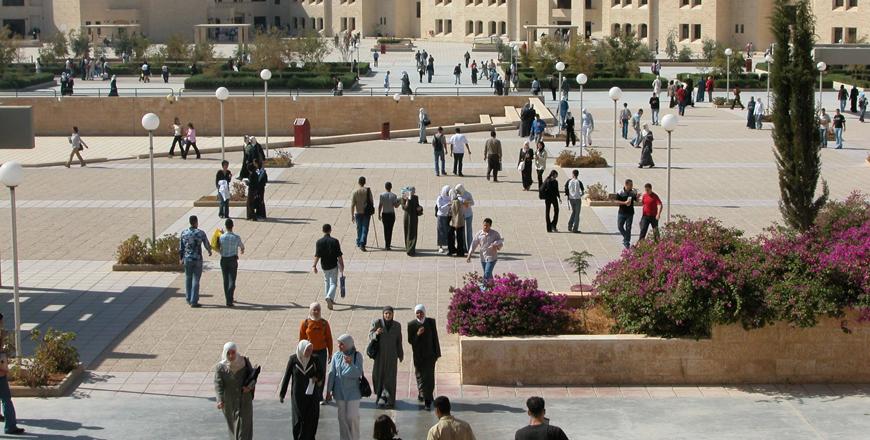You are here
Council in final stage to endorse new university admission criteria
By Khetam Malkawi , Petra - Jun 07,2015 - Last updated at Jun 07,2015
AMMAN — The Higher Education Council will next week finalise the unified admission criteria for public universities, to go into effect in the 2015-2016 academic year, a Ministry of Higher Education official said on Sunday.
Hani Dmour, the ministry’s secretary general, said discussions of the council will also cover the “exceptions” criteria implemented in admission to universities especially after raising threshold scores.
The council last week decided to raise the minimum score for admission to public universities from 65 to 70 and at private universities from 60 to 65, starting the 2015-2016 academic year.
Explaining the reasons behind the decision, Dmour said: “We want to encourage students to enrol in technical education.”
However, there will be exceptions for admission in some institutions that include universities in southern governorates and Al al Bayt University in Mafraq, where the “quality of school education and condition of schools are not at the same level of schools in major governorates”.
Meanwhile, in an interview with the Jordan News Agency, Petra, published Sunday, Minister of Higher Education Labib Khadra said that the decision to raise the minimum admission score was adopted based on previous strategies and recommendations made by several committees over the past seven years.
He explained that raising the threshold average would ensure a better quality of college students and reduce campus violence, a phenomenon that has claimed lives in tribal brawls over the past few years.
In a related development, the House’s Education and Culture Committee demanded the minister to reverse the decision to raise the admission score.
The panel’s president, Bassam Btoush, criticised the minister for taking the decision and failure to provide the lawmakers with a study on the decision and its potential repercussions.
He also criticised the minister for leaving the meeting abruptly.
Studies showed that most of the students involved in violence have been admitted to state universities through lists of exceptions, including one that secures seats for students from “underprivileged areas” outside the competition system.
According to activists, around 38 per cent of students accepted in state universities last year won their seats through the exception system, which also ensures privileges to the children of military and security personnel, teachers, and Palestinian refugee camps and tribes, among others.
In his interview with Petra, Khadra explained the criteria discussed to streamline entrance policies.
“Let us take the tribal list, for example, we will consider the highest and lowest scores [of students applying for the same major]. It is not fair for a student whose [Tawjihi score] is 67 per cent to get a seat to study English literature, while a student with a 79 per cent cannot compete for such a seat under the regular competition system,” he said.
Meanwhile, the minister said there will be two different models to be used in accrediting universities. One will be applied to “regular” higher education institutions and the second for “technical and applied universities”.
According to Khadra, applied universities should have laboratories more than those in the “regular” universities, in addition to industry-related graduation projects, fewer classrooms, practical training for up to six months and liaisons with the private sector.
Related Articles
AMMAN — A group of MPs on Tuesday called for freezing the "untimely" and "confusing" draft unified admission criteria for public universitie
AMMAN — The Higher Education Council has decided to raise the minimum score for admission at public universities from 65 to 70 and at privat
AMMAN — The Higher Education Council (HEC) will meet on Sunday to discuss possible changes to the minimum admission score to the Kingdom’s p















